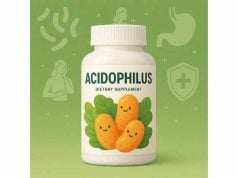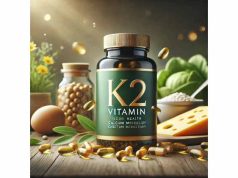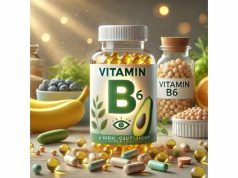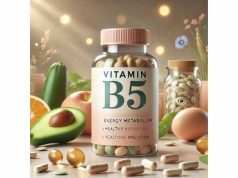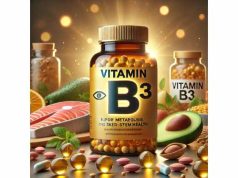
Vitamin B12, also known as cobalamin, is a water-soluble nutrient widely recognized for its crucial role in red blood cell formation, nerve maintenance, and DNA synthesis. Recent research also points to potential gains in eye health, positioning Vitamin B12 as a valuable ally for clearer vision and improved ocular function. From safeguarding the optic nerve to supporting robust blood circulation within the retina, cobalamin may positively impact eyesight and reduce the likelihood of age-related degeneration. In this comprehensive guide, we will explore how Vitamin B12 enhances visual acuity, discuss best practices for supplementation, review scientific findings, and answer common questions about integrating it into your vision-care routine.
Table of Contents
- What Is Vitamin B12?
- How Vitamin B12 Promotes Sharper Vision
- Major Benefits of Vitamin B12 for Ocular Health
- Guidelines for Using Vitamin B12 Effectively
- Scientific Insights into Vitamin B12
- Frequently Asked Questions
- References and Sources
What Is Vitamin B12?
Vitamin B12 is among the eight B vitamins essential for numerous biochemical activities in the body. Though most people associate it with red blood cell production and neurological well-being, it also contributes to the health of various organ systems, including the eyes. Cobalamin comes in multiple chemical forms—cyanocobalamin, methylcobalamin, adenosylcobalamin, and hydroxocobalamin—but all ultimately serve similar physiological purposes once converted to active coenzyme versions.
Key Characteristics and Functions
- Nervous System Integrity
Vitamin B12 is indispensable for myelin formation, the protective sheath surrounding nerves. This ensures rapid and accurate nerve conduction, a property particularly relevant for optic nerve function and overall visual processing. - Homocysteine Regulation
Like several other B vitamins, Vitamin B12 helps metabolize homocysteine, an amino acid whose elevated levels can damage blood vessels and potentially affect ocular circulation. - Energy Metabolism
By aiding the transformation of fats and proteins into usable energy, cobalamin helps ensure tissues with high energy demands—such as the retina—receive consistent metabolic support. - Red Blood Cell Formation
Robust production of healthy red blood cells fosters efficient oxygen transport throughout the body, including microvasculature networks that nourish ocular tissues.
Primary Food Sources
Vitamin B12 is found predominantly in animal-based foods, making it a concern for vegetarians and vegans if dietary planning is inadequate. Some chief sources include:
- Meats: Beef, lamb, pork
- Poultry: Chicken, turkey
- Fish and Seafood: Salmon, tuna, sardines, shellfish
- Dairy Products: Milk, cheese, yogurt
- Eggs
- Fortified Foods: Certain cereals or plant-based milk substitutes enriched with B12
Deficiency Indicators
Signs of Vitamin B12 deficiency can be subtle at first and intensify over time:
- Fatigue and Weakness: Due to impaired red blood cell production
- Neurological Effects: Numbness, tingling in extremities, balance difficulties
- Megaloblastic Anemia: Enlarged red blood cells indicating a dysfunctional production process
- Visual Disturbances: Some individuals experience light sensitivity, blurred vision, or eye discomfort, possibly tied to nerve involvement
Link to Eye Health
Shortfalls in cobalamin can provoke a chain reaction that undermines ocular function—ranging from inadequate oxygen delivery to compromised nerve signaling. Addressing or preventing deficiency, therefore, helps maintain stable eye performance and may mitigate risks associated with chronic conditions such as glaucoma or age-related macular degeneration (AMD). Understanding this baseline sets the stage for exploring “Vitamin B12 for Eye Health.”
How Vitamin B12 Promotes Sharper Vision
Mention “Vitamin B12 Improves Vision”, and it’s natural to wonder exactly which biological pathways are involved. While cobalamin isn’t a direct antioxidant or a key structural component of the eye like collagen, it bolsters various metabolic, vascular, and neurological functions that collectively support visual clarity.
1. Enhancing Optic Nerve Performance
The optic nerve transmits signals from the retina to the brain’s visual cortex. Vitamin B12’s indispensable role in forming and maintaining myelin sheaths can:
- Improve nerve signal velocity, ensuring images captured by photoreceptors reach the brain with minimal delay
- Shield against nerve-related disorders, such as optic neuritis or neuropathy, that can blur or impair vision
2. Reducing Inflammatory Stress
Subtle, chronic inflammation often contributes to eye issues—dryness, irritation, or more serious degenerative conditions. Vitamin B12 influences immune regulation:
- Dampening inflammatory markers when combined with other B vitamins or antioxidants
- Supporting calm ocular surfaces, which is beneficial for individuals prone to dryness or irritation
3. Stabilizing Vascular Integrity
Blood flow is critical to supplying retinal cells with oxygen and nutrients. Elevated homocysteine can damage or narrow blood vessels, hindering this process. By helping convert homocysteine to harmless substances:
- Cobalamin maintains the pliability of microvascular structures, including those in the retina
- Decreases risk of micro-hemorrhages or fluid leaks that degrade vision quality
4. Fostering Energy in High-Demand Tissues
The retina, one of the body’s most energy-intensive tissues, depends on efficient ATP generation. Vitamin B12 assists in:
- Converting dietary proteins and fats into usable energy, critical for the retina’s photoreceptors
- Preventing metabolic shortfalls that might accelerate photoreceptor fatigue or degrade dark-light adaptation capabilities
5. Nurturing Eye-Immune Synergy
Because the eye is an immune-privileged site, balanced immune function is vital. Vitamin B12 contributes to:
- Production and proper activation of immune cells, potentially curbing excessive immune responses that harm ocular tissues
- Promoting tissue repair processes if micro-injuries occur—whether from mild abrasions or inflammatory bouts
6. Sustaining Healthy Tear Film Composition
While not the primary influencer of tear production, B12’s broad metabolic benefits can:
- Support glandular health that contributes aqueous or lipid layers to the tear film
- Minimize ocular surface dryness by ensuring the cornea receives proper nutrient supply
7. Aiding in Neurological-Circulatory Coordination
Eyesight depends on both well-tuned nerve signals and consistent blood flow. By helping refine the interplay between neuronal and vascular pathways, Vitamin B12:
- Coordinates oxygen delivery to match the retina’s fluctuating demands
- Harmonizes nerve function to reduce disruptions or flickering vision
Through these interconnected mechanisms, cobalamin can subtly, but significantly, enhance how our eyes operate. Though it might not singlehandedly fix advanced eye diseases, it’s a valuable piece in the puzzle of overall visual maintenance.
Major Benefits of Vitamin B12 for Ocular Health
With the foundational science covered, let’s dissect the “Vitamin B12 Vision Benefits” that many individuals and healthcare providers have observed. From basic eye comfort to potentially lowering the risk of severe conditions, cobalamin offers a spectrum of gains for people of all ages.
1. Potentially Lower Risk of Macular Degeneration
Age-related macular degeneration (AMD) stands as a leading cause of vision loss in older adults. High homocysteine levels can exacerbate AMD risk. By helping control homocysteine, B12:
- May delay or lessen the progression of early AMD, particularly when coupled with vitamins B6, B9, and antioxidants
- Bolsters the retina’s resilience against oxidative stress and microvascular deterioration
2. Support for the Optic Nerve in Glaucoma
Glaucoma often results from increased intraocular pressure damaging the optic nerve. Maintaining nerve health is critical in buffering these effects. Adequate Vitamin B12:
- Fortifies nerve tissues through robust myelin upkeep
- Could help reduce nerve fiber vulnerability to pressure-induced strain
3. Alleviation of Eye Strain and Fatigue
Daily tasks—reading, computer work, smartphone use—can strain the ciliary muscles and retina. By ensuring healthy cellular metabolism and nerve conduction, B12:
- Helps eyes recover from prolonged near-focus activities
- Can mitigate mild headaches or dryness associated with digital eye strain
4. Enhanced Adaptation to Light and Darkness
Moving from bright sunlight into a dim indoor space demands the retina swiftly adjust photoreceptors. Because B12 fosters optimal functioning of these high-energy cells:
- Transitions between varied light levels may feel smoother
- Night vision clarity could improve, particularly in individuals with marginal deficiencies
5. Reduced Risk of Pernicious Anemia-Related Vision Problems
Pernicious anemia arises from inadequate B12 absorption, leading to severe deficiency. Ocular manifestations—like blurred vision, double vision, or even partial loss—can occur if neurological symptoms affect the optic nerve. Correcting B12 deficiency:
- Counters progressive nerve damage that might otherwise compromise sight
- Restores RBC production, improving overall oxygen delivery to the eyes
6. Improved Tolerance to Environmental Stressors
Smoke, pollution, excessive screen time, and dryness all tax the eyes. A well-supported metabolic environment provided by cobalamin:
- Helps with detoxification pathways that rid ocular cells of damaging byproducts
- Maintains stable tear film for protective lubrication
7. Cooperative Effects with Other Eye-Protective Nutrients
Vitamin B12 rarely acts solo. It synergizes with:
- Vitamin B6 and Folate (B9) to keep homocysteine in check
- Antioxidants like Vitamin C and E to guard against oxidative stress
- Minerals such as Zinc to bolster retina function
- Carotenoids like Lutein and Zeaxanthin for macular shielding
By harnessing these complementary relationships, cobalamin lays one more brick in the foundation of comprehensive ocular care. While not a miracle cure, it fosters an internal environment conducive to maintaining strong, comfortable, and resilient vision.
Guidelines for Using Vitamin B12 Effectively
The next logical question is: “How do I incorporate Vitamin B12 for Eye Health?” Setting up a consistent, deliberate routine can help you fully unlock cobalamin’s protective and supportive properties.
1. Understand Your Daily Requirements
The Recommended Dietary Allowance (RDA) for Vitamin B12 varies by age, gender, and specific life stages:
- Adults: ~2.4 micrograms (µg)/day
- Pregnant or Nursing Individuals: 2.6–2.8 µg/day
- Older Adults: May benefit from higher intakes due to reduced absorption efficiency
In practice, many healthcare professionals suggest daily doses ranging from 250 µg to 1,000 µg or more for addressing specific deficiencies or neuropathic concerns. Since cobalamin is water-soluble, the body excretes excess, reducing overdose worries. Nonetheless, extremely high doses can sometimes lead to side effects such as mild acne or, in rare cases, sensitivity in certain individuals.
2. Choose the Right Delivery Form
Cobalamin supplements come in multiple forms:
- Cyanocobalamin: Common and cost-effective, though it requires additional processing in the liver to become active
- Methylcobalamin: Pre-activated, often preferred for neurological support, including potential optic nerve benefits
- Adenosylcobalamin: Another bioactive form found in the mitochondria, supporting energy production
- Hydroxocobalamin: Often used in medical injections
For many, a daily methylcobalamin supplement or a B-complex formula can suffice. Those with severe deficiencies or absorption disorders—like pernicious anemia—may require higher doses or injections under medical supervision.
3. Combine with Other Vision-Friendly Nutrients
To optimize “Vitamin B12 Vision Benefits,” pair it with substances known for bolstering eye function:
- Omega-3 Fatty Acids (from fish oil, flaxseed, or algae) to reduce inflammation and support tear film
- Antioxidants such as Vitamin C, Vitamin E, lutein, and zeaxanthin for direct retinal and lens protection
- Minerals like zinc and selenium that facilitate proper enzymatic reactions in ocular tissues
This synergy addresses multiple vulnerabilities in the eye—from oxidative stress to nerve conduction—fostering comprehensive visual wellness.
4. Consider Food Pairings and Lifestyle Factors
Absorption can be influenced by various factors:
- Acidic Stomach Environment: B12 requires intrinsic factor secreted in the stomach. Conditions like atrophic gastritis or use of acid-blocking medications can hamper absorption.
- Meal Timing: Some prefer taking cobalamin on an empty stomach for better assimilation, while others find it easier with meals. Experiment to see which approach you tolerate best.
- Alcohol Use: Heavy drinking impairs B12 absorption and utilization, so moderating alcohol intake can enhance your nutrient gains.
5. Track Changes and Consult Professionals
Evaluate whether B12 supplementation is positively impacting your vision or overall eye comfort:
- Notice dryness levels or how quickly your eyes fatigue under prolonged reading
- Check if night vision or adaptation to different light conditions improves
- Watch for changes in general energy and neural health, as better nerve conduction can indirectly reflect in improved visual function
It’s wise to consult an ophthalmologist or optometrist, especially if you have an existing eye condition like macular degeneration, glaucoma, or diabetic retinopathy. Additionally, blood tests can confirm B12 levels, guiding you on dosing specifics.
6. Avoid Overreliance on One Nutrient
Cobalamin is crucial, but it shouldn’t be the only focus of your wellness routine. Balanced nutrition, adequate hydration, consistent sleep, and protective measures—like wearing sunglasses under strong UV exposure—remain cornerstones of robust eye health.
7. Special Populations and Cautions
- Vegans and Vegetarians: Since plant sources of B12 are scarce, supplementation or fortified foods become essential.
- Older Adults: Absorption can diminish with age, so B12 supplementation is often recommended for seniors beyond 50.
- Gastrointestinal Disorders: Conditions like Crohn’s disease or celiac disease hamper nutrient uptake, reinforcing the need for professional monitoring.
By weaving these guidelines into daily life, you create a strong scaffold for “Vitamin B12 for Vision Improvement.” Sustained compliance and mindful integration with other healthy habits allow you to glean the maximum protective and supportive benefits from cobalamin.
Scientific Insights into Vitamin B12
While anecdotal accounts and clinical observations hint at the visual advantages of cobalamin, various research studies and reviews also underline its significance. Below are key findings that reinforce “Vitamin B12 Eye Health.”
1. AMD and Homocysteine Reduction
A notable piece of research published in the Archives of Internal Medicine examined how supplementation with vitamins B12, B6, and folic acid affected age-related macular degeneration in female subjects:
- Outcome: The study indicated that those receiving the B-vitamin trio had a reduced risk of AMD progression compared to a placebo group.
- Mechanism: Lowering homocysteine levels was cited as a major factor behind the slowed disease development.
2. Optic Neuropathy and Cobalamin Deficiency
Clinical literature documents that patients with severe Vitamin B12 deficiency can develop optic neuropathy, manifesting as blurred or diminished vision. Restoring normal cobalamin levels typically:
- Ameliorates or reverses these optic nerve symptoms, especially if caught early
- Prevents further nerve damage that can lead to permanent sight impairment
3. Diabetic Retinopathy Considerations
Diabetes frequently damages small vessels in the retina, culminating in retinopathy. By supporting vascular integrity through homocysteine management and nerve sheath maintenance:
- B12 supplementation might complement standard diabetic care (blood glucose control, etc.) in alleviating microvascular stress
- Advanced trials highlight that combining B12 with certain antioxidants can modestly slow retinopathy in at-risk patients
4. Migraine with Aura and Visual Disturbances
Migraines that feature visual auras often have a neural or vascular component. Studies suggest that supplementation with B vitamins, including B12:
- Potentially reduces the frequency or intensity of migraines
- Could stabilize nerve conduction behind aura phenomena, though more targeted research is needed
5. Seniors and Glaucoma Risk
Some observational data hints that older adults with robust B12 status exhibit:
- Better optic nerve head measures when screened for early glaucoma signs
- Fewer pressures associated with nerve fiber damage
While further randomized trials are essential, such correlations highlight cobalamin’s promise in mitigating progressive ocular diseases that revolve around nerve and vascular compromise.
6. Synergistic Impact with Other Nutrients
Multiple investigations emphasize that B12 is most potent when combined with vitamins B6, B9 (folate), or antioxidants:
- Homocysteine-lowering synergy can magnify protective effects in AMD or vascular-based eye issues
- Joint antioxidant defense helps safeguard the retina from degenerative oxidative processes
7. Possible Research Gaps
Though existing literature reveals a strong foundation, some gaps remain:
- Optimal Dosing for explicit eye conditions is not universally established
- Long-Term Impact on advanced diseases (like advanced glaucoma or diabetic retinopathy) requires additional prospective studies
- Role in Dry Eye Syndrome or mild ocular irritations is less examined, though anecdotal evidence suggests benefits
Despite these uncertainties, the broad consensus affirms that Vitamin B12 is vital for nerve health, vascular stability, and metabolic vigor—cornerstones of good eyesight. Coupled with thorough lifestyle measures, cobalamin stands out as a valuable supplement in the quest for enduring visual clarity.
Frequently Asked Questions
How quickly does Vitamin B12 improve vision?
Many people experience gradual changes over weeks to months, especially if they had a borderline or deficient B12 status. Improved ocular comfort, reduced dryness, or sharper focus can become noticeable within this timeframe when combined with balanced nutrition and protective habits.
Can B12 alone resolve serious eye issues like glaucoma or macular degeneration?
No. While B12 supports nerve integrity and helps reduce certain risk factors, it is not a sole treatment for advanced ocular diseases. It should be part of a broader strategy, including medical care, lifestyle adjustments, and potentially other supplements recommended by eye specialists.
Is there a maximum safe dose of Vitamin B12?
Vitamin B12 is water-soluble, and the body generally excretes surplus amounts. Toxicity is rare, but extremely high doses can sometimes trigger mild side effects like acne or rosacea flare-ups. Consulting a healthcare professional for dosing guidance is advisable, especially with underlying conditions.
Do vegans and vegetarians need a B12 supplement?
Yes, most vegans and some vegetarians require B12 supplementation or regular consumption of fortified products. Since natural B12 is largely absent in plant foods, relying on diet alone can be difficult, making a supplement crucial for preventing deficiency.
Are sublingual or injection forms more effective than oral tablets?
Different forms can work well, but those with malabsorption issues (e.g., pernicious anemia, gastrointestinal disorders) may benefit from injections or sublingual versions. For many individuals with normal absorption, high-quality oral supplements are sufficient to maintain adequate B12 levels.
References and Sources
- Wang, Y., et al. (2013). Homocysteine and eye disease: a review. Clinics in Laboratory Medicine, 33(3), 447–461.
- Christen, W. G., et al. (2009). Folic acid, pyridoxine, and cyanocobalamin combination treatment and age-related macular degeneration in women: the Women’s Antioxidant and Folic Acid Cardiovascular Study. Archives of Internal Medicine, 169(4), 335–341.
- Spence, J. D. (2006). Homocysteine-lowering therapy: clinical utility in stroke prevention. CNS Spectrums, 11(10), 754–762.
- Reynolds, E. (2006). Vitamin B12, folic acid, and the nervous system. The Lancet Neurology, 5(11), 949–960.
- Langan, R. C., & Zawistoski, K. J. (2011). Update on vitamin B12 deficiency. American Family Physician, 83(12), 1425–1430.
- National Institutes of Health (NIH), Office of Dietary Supplements. (2022). Vitamin B12 Fact Sheet for Health Professionals.
- Evans, J. R., & Lawrenson, J. G. (2017). Antioxidant vitamin and mineral supplements for slowing the progression of age-related macular degeneration. Cochrane Database of Systematic Reviews, 7, CD000254.
Disclaimer:
This article is for educational purposes only and does not substitute professional medical advice. Always consult with a qualified healthcare professional before making significant changes to your supplement regimen or treatment plan related to vision care.
We hope this guide on Vitamin B12 for vision was helpful! Feel free to share it on Facebook, X (formerly Twitter), or any of your preferred social platforms, and follow us for more insights on protecting and enhancing eye health.

